Mensch59 here. I tend to be pessimistic, resigned, depressed. This was a positive post by Paul Cudenec.
Source: Paul Cudenec's blog
The French resistance will prevail
It has been eight years now since I left England to come and live in France.
A lot has happened back in the UK since then (not least the whole Brexit pantomime), but the period has been a dramatic one here as well, as I will set out.
Moreover, with hindsight, what often felt at the time like a disorientating jumble of events now appears to me as one clearly-visible phenomenon, namely a vast wave of growing popular resistance to the dominant system which those in power have been trying to crush by all possible means.
Now, in 2021, this struggle is coming to what could well be its final stage, a make-or-break moment which will decide not just the future of France but also play a decisive role in determining which direction humankind as a whole will take in the decades to come.
One of the reasons why I quit my native country was the stifling totalitarianism that had been growing up for some years, whether in the form of surveillance cameras, politicised policing, state infiltration of dissident movements or a general sense of unquestioning sheep-like obedience to authority in all its forms.
I came to France inspired by its proud history of revolution and revolt, by its critical thinking, by its strong anarchist tradition and by the new wave of anti-industrial revolt exemplified by the ZAD of Notre-Dame des Landes.
It didn’t take long for the political temperature to rise. In October 2014 young environmental protester Rémi Fraisse (pictured) was killed by police at Sivens while opposing the building of a dam designed purely to help agri-business and pushed through by local representatives of the ruling Socialist Party.
Rémi’s death forced into the French public consciousness an awareness that there was serious resistance being mounted against the industrialist system.
Protests like that at Sivens reminded me of anti-roads protests in the UK in the 1990s, where traditional local opposition successfully merged with a more radical approach.
I wrote: “It is significant that it is the so-called Left that is in power, both locally and nationally. Because what is happening has very little to do with outdated notions of Right versus Left, in which all are agreed on the need for ‘economic growth’, for ‘progress’ and for ‘jobs’.
“This is the war which is already being fought all over the world, but can only become clearer and more intense as time goes on. It’s humanity against the machine, nature against profit, the life-force against the industrial death-sentence”.
My understanding of what was happening in France was clarified by the work of the Invisible Committee, who, I noted in November 2014, argued that it was wrong to lament the demise of the anti-globalisation movement that seemed such an unstoppable force at Genoa, Seattle, or the City of London in the years leading up to 9/11, because it had simply morphed into something different.
Members of the Committee later kindly agreed to give a talk at the Cowley Club back in Brighton, where I was staying with a friend at the start of 2015.
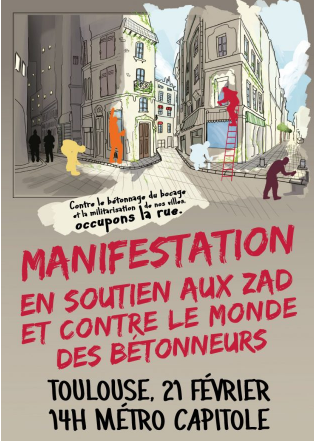
Their depiction of an insurrectionary situation in France was backed up by events on the ground.
By February 2015 the political hysteria following January’s Charlie Hebdo terrorist attacks had already created a police-state atmosphere – the authorities had been grateful to use the opportunity to clamp down on all forms of opposition to the system.
That month saw two big protests staged in different parts of the country, with the call-out declaring: “Against the concreting of our countryside and the militarisation of our towns, let’s occupy the streets!”
Reviewing a book on the Sivens struggle, in May 2015, I again judged that it was part of a rejection of the industrial system itself which went beyond the usual left-right divide.
It amounted, I said, to a conflict of civilizations. “On the one hand there is the neoliberal system, enshrined in the local and national political elite, which is always happy to sacrifice the land for the benefit of growth, development, profit. On the other hand there is another way of thinking, a peasant way of thinking, a much older way of thinking which is paradoxically now often represented by the youngest generation”.
This was a struggle which the rebel forces appeared to be winning. In August 2015 the French state finally failed in its desperate attempts to prosecute the Invisible Committee “Tarnac” defendants for so-called “terrorism”, after seven years of trying.
Meanwhile, many of us were relishing the prospect of the massive protests being planned for the COP21 Summit in Paris, for which radicals were due to converge from all across Europe and beyond.
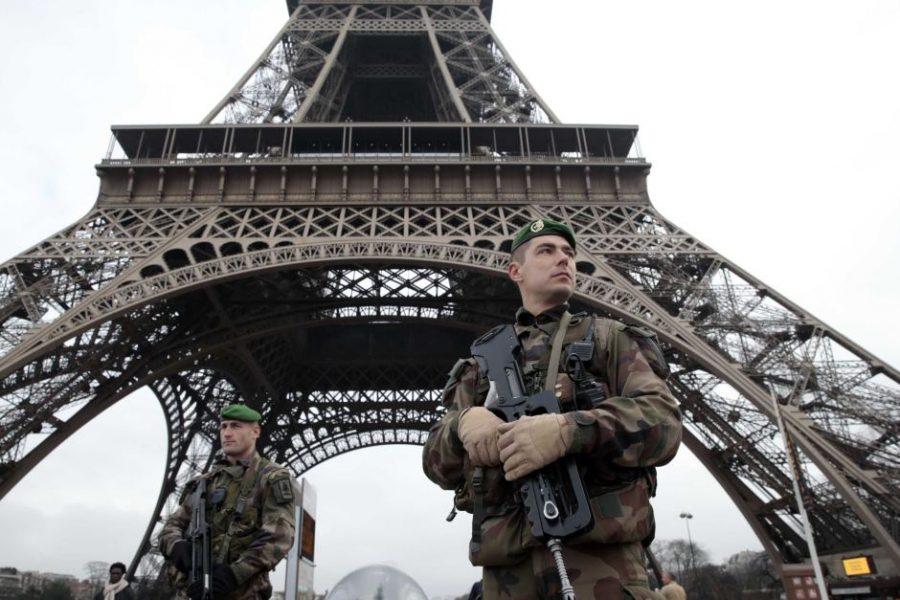
But that all changed, thanks to the terrorist attacks in Paris in November 2015. Another convenient excuse to outlaw dissent had dropped into the lap of the French state, as The Acorn reported:
“Originally, the big protests planned for November 29 and December 12 were apparently outlawed because the crowds were ‘at risk’ of terrorist attack, but it quickly became clear that the state of emergency was aimed as much as opponents of the industrial-capitalist system as at armed Islamists.
“Several days before the start of COP21, several house arrests and police raids were aimed at activists close to the ZAD (anti-industrial protest camp) and environmental movement across the whole of France.
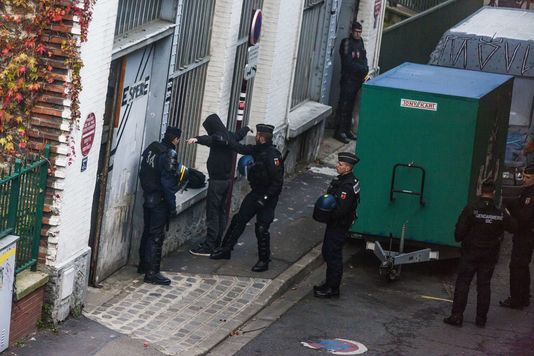
“Six people were put under house arrest in Rennes, along with a Paris member of the legal team for the CoalitionClimate21, which consists of 130 groups, NGOs and unions. Police also tried to impose this measure on several people in Rouen, Lyon and elsewhere.
“Meanwhile, all across France any event with the slightest hint of a political nature has been banned by the authorities without the need for any justification – in the southern city of Nîmes, for instance, a bookfair planned for November 21 and 22 was cancelled, while down the road in Alès a march against plans for a golf course and luxury housing development was likewise forbidden.
“Make no mistake – a very deliberate psychological attack is being made on the population of France by the imposition of the state of emergency and all the fear-mongering jingoistic hysteria accompanying it”.
In December 2015 I warned that the corrupt and ruthless mafia that controls our society wouldn’t relinquish its power quietly in the face of growing opposition and would eventually be forced to “drop all pretence at democracy”.
If the authorities thought that the fear of terrorism would dampen the French fighting spirit for long, they were mistaken.
That following spring, of 2016, saw a new grassroots movement emerge on the streets to oppose the Loi Travail, neoliberal changes to the world of work championed by the “Socialist” minister Myriam El Khomri.
Young French people, some very young, were at the forefront of this rebellion, giving renewed hope of ongoing struggle against exploitation and tyranny.
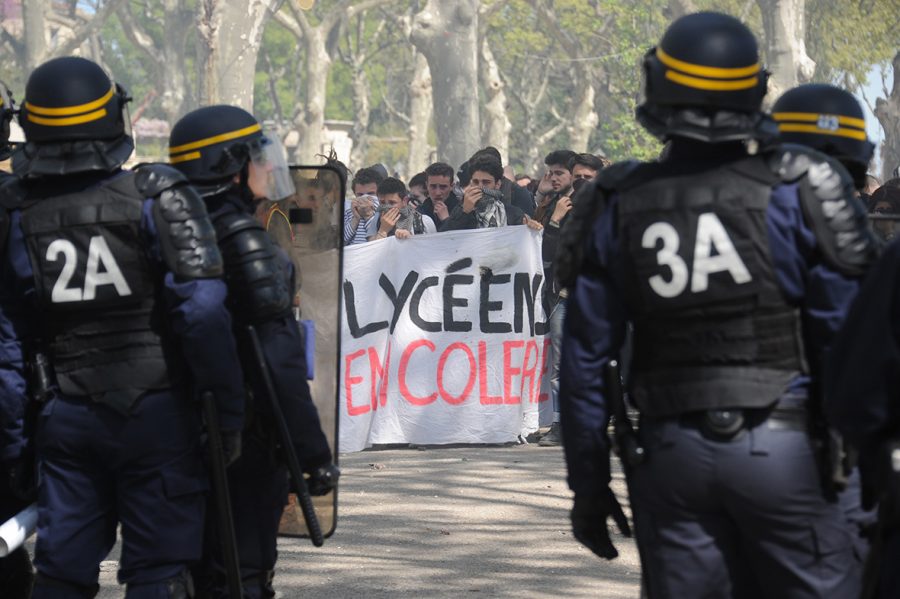
I explained in March 2016: “A revitalised resistance against the capitalist system is hitting the streets of France, with a new generation of young people leading the way.
“The spark for the revolt is the planned El Khomri law – ‘reforms’ like those being wheeled out by capitalist politicians everywhere, which aim to reduce workers’ rights and deliver corporations a more ‘flexible’ and low-cost workforce from which to profit.
“When gutless trade unions failed to react strongly to the proposals, people power took over and quickly organised an autonomous wave of struggle which the unions have now been forced to join.
“Behind the protests and strikes, which have particularly featured sixth-formers and students facing a lifetime of slavery to industrial capitalism, lies a deeper anger with the system.
“The fascistic ‘state of emergency’ brought in by the ‘Socialist’ government on the back of November’s terror attacks in Paris is one of the elements that has been cited.
“And the use of these sweeping police powers to try and crush resistance to the new labour laws has only fuelled the outrage and the determination not to give in”.
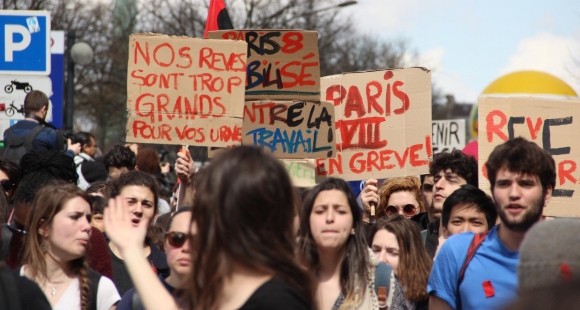
By the end of April, there was a real sense of revolution in the air, with ‘Nuit Debout’ public assemblies flourishing every night across France and, at the same time, opposition to the Loi Travail spiralling into outright resistance to the system, with a general strike being called.
And the response of the French state to this uprising? Violent repression, with thuggish riot cops unleashing unprecedented violence on the mainly youthful rebels.
But this only further radicalised the youngest generation and they responded with admirable physical and mental defiance.
On May 10 2016, François Hollande’s regime outraged the public still further by pushing the hated Loi Travail through the National Assembly without even a vote, using the controversial article 49.3.
And as levels of revolt grew stronger, the French state crossed a significant line in repression by using “state of emergency” legislation, supposedly introduced to combat terrorist attacks, to ban individuals from protesting.
“Letters were received by activists on Saturday May 14 banning them from taking part in any protests against the Loi Travail on Tuesday May 17″.
Unsurprisingly, the Parti Socialiste was defeated in the presidential elections of the following year, but Hollande’s replacement, centrist poster-boy Emmanuel Macron, had been groomed across the Atlantic by the German Marshall Fund of the United States to push to a new level the assault on French society by profiteering international financial parasites.

After a year and a half of Macron’s contemptful agenda, many people had had enough. With the political parties and trade unions unwilling to make a stand, the rebellion was forced to find a completely new way of expressing itself.
On November 17 2018, thousands upon thousands of ordinary French people, across the country and often in rural areas, donned the fluorescent yellow jackets that legally have to be carried in motor vehicles, and occupied roundabouts, blocking traffic and causing general havoc.
If the initial spark was the rise in the price of diesel fuel, it quickly became clear that something much deeper was at stake here. This was a rebellion of the real people, fed up to the teeth of being despised, patronised and exploited by the tiny self-satisfied clique of politicians, civil servants, financiers and media moguls in Paris.
I wrote on December 9 2018: “The Gilets Jaunes or Yellow Vest movement has staged four successive Saturdays of startling and energetic mass mobilisations across France against the neoliberal Macron regime, turning a protest against the cost of living into an attempted insurrection”.
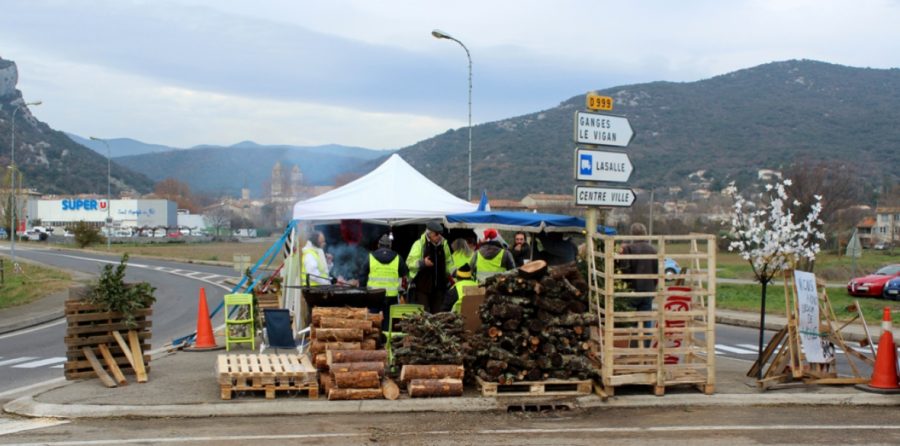
At this point I started travelling to Gilets Jaunes protests and actions in the region where I live and, in the face of inaccurate or non-existent reports in the UK mainstream media, filed reports and analysis for publications including Red Pepper, The Canary and the Morning Star (twice), as well as for my own blog and the Winter Oak site (see here, here, here, here and here), where there is also a devoted page linking to various articles and translations on the movement.
As I remarked on April 19, 2019: “By talking to protesters, seeing what goes on, reading their leaflets and newsletters, I think have been able to gain a good understanding of the uprising, even though I have been geographically constrained to a relatively small area in the south”.
The response to the Gilets Jaunes uprising by the Macron regime was very much in line with the direction the French state had been taking for some years.
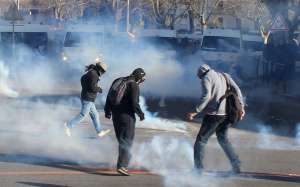
I commented on August 20, 2019: “Anyone who has been following the Gilets Jaunes’ struggle since November 2018 will appreciate to what extent France is slipping into 21st century neoliberal-style fascism.
“From the sheer physical violence of the state’s attacks on protesters, through its draconian use of bans on protests and ‘pre-emptive’ arrests, to the cover-up and denial of what is happening by politicians and their tame media, the situation is truly alarming”.
A year after the Gilets Jaunes first emerged, they were still fighting on, despite all the repression, and in December 2019 their struggle converged to powerful effect with opposition to yet more neoliberal “reforms”, this time to the pension system, imposing longer working lives and more privatisation.
A series of general strikes managed to paralyse the country on several occasions, as this report in The Acorn explains.
By January 21, 2020, it was clear that the gulf between the French public and the Macronist state was so vast that it had torn giant holes in the credibility of the whole system.
I wrote: “If our Western capitalist ‘democracies’ were what they claim to be, Emmanuel Macron would no longer be president of the French republic.
“After 14 months of non-stop protests against his regime and its hardcore neoliberal agenda, it is quite clear that he has no social licence to carry on.
“A huge movement of strikes and protests against the regime’s ‘work-until-you-drop’ pension ‘reforms’ has swept across French society.
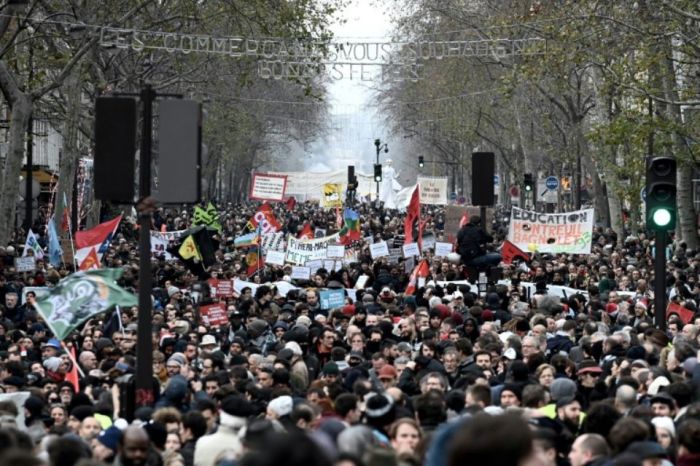
“Across the country Gilets Jaunes and strikers have been disrupting Macronist (LREM) meetings, often drowning them out with renditions of On est là (‘For the honour of the workers and for a better world, we are here!’)”.
I took part in one of these disruptions and felt, for the first time in my life, that the ruling class really was powerless in the face of popular opposition.
Presumably that same ruling class was feeling likewise, as it rolled out every weapon at its disposal against the rebels, including, of course, massive and frightening levels of police brutality against protesters.
I commented that, under the pressure of this growing mood of revolt, “neoliberalism is coming out of the closet and revealing itself to be a 21st century form of fascism”.

It is, for me, very telling that in his 2020 book, Covid-19: The Great Reset, WEF boss Klaus Schwab specifically cites the Gilets Jaunes in France as examples of the unwelcome “social unrest” sweeping the world and that he warns of the “sombre scenario” that “the same could happen again”…
It would be wrong to say that there was initially no resistance to the totalitarianism of the Covid Coup in France.
But the harshness of the clamp-down and complicity of much of the left, even the “radical” left, certainly delayed the response and I was watching from afar and with envy the massive demonstrations in London, wondering what had happened to the French love of liberté.
In February this year there was a wave of protest against the Macronist regime’s fascistic Global Security legislation, a cause which mobilised part of the traditional left as well as Covid dissidents.
The brutal way in which protests were attacked by riot cops caused widespread outrage and fuelled new concerns over the direction in which the country was being taken.
Later in the spring, French dissidents injected a welcome dose of musical rebellion into the international mix, with widespread flashmob performances of the song Danser Encore by HK et Les Saltimbanks, a defiant new anthem of freedom and joie de vivre.
But large-scale protest did not really take off until July, when Macron announced the introduction of the “pass sanitaire“, a “vaccine” passport which would require people to present a QR code (showing jab, negative test or immunity) in order to drink a coffee outside a café, eat at a restaurant, go to the cinema, use a public library, take a long-distance train, go to hospital for non-emergency reasons…
Suddenly, the true nature of the “Covid response” being foisted on them seemed to simultaneously strike millions of people in France.
Emergency demonstrations on the July 14 bank holiday were quickly followed by massive protests across France, even in the most unlikely of small towns, which have continued every weekend throughout the summer, traditionally a time when all protesting grinds to a halt here.
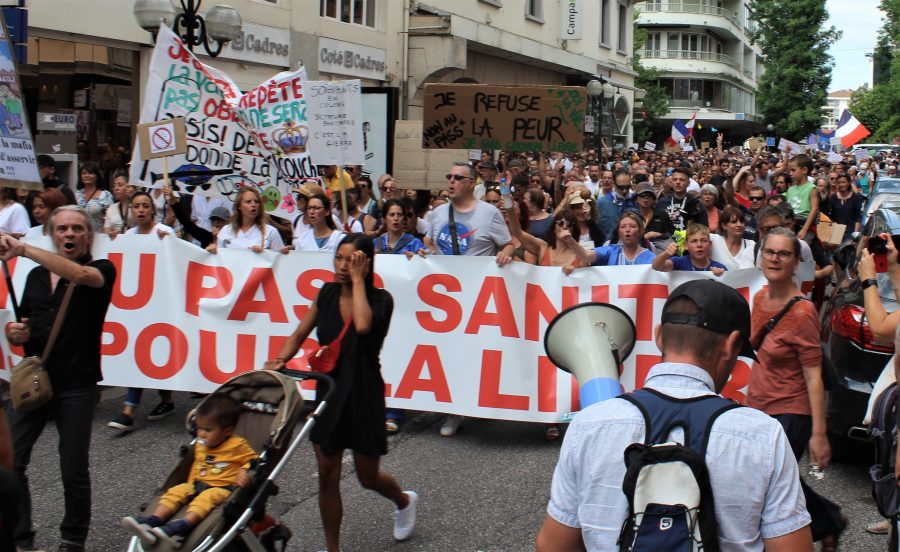
As it happens, I have been moving around the country during this period, so after taking part in the local protests in Montpellier, I was able to join demonstrators in Aubenas, Annecy, Sallanches, Limoges, Dinan, St Malo, and then Alès on August 28 (see photo gallery below).
Everywhere I have been impressed by the sheer ordinariness of the people taking to the streets in defence of freedom. There is no particular “look” or age group and a high proportion of women. Vaccinated people have been demonstrating alongside the unvaccinated, out of principle.
Inevitably there has been concern voiced from the left about nationalist/right-wing groups involved in the protests, but there seems to be a growing consensus that the answer, as with the beginning of the Gilets Jaunes movement, is to take part in the protests and shout louder than them.
The need for temporary unity in the face of unprecedented danger must surely prevail, as it did for the resistance during the Second World War. The time for broader political discussion will come later.

There is another aspect to all this, namely the depressing levels of compliance with the new Covid order. When I see all the submissive masked citizens in the streets and the “pass sanitaire obligatoire” notices outside the cafés, I wonder if my faith in the French people is misplaced.
While people like me tend to romanticise the wartime resistance to Nazi occupation, and the puppet Pétain regime in the south, the sad truth is that a large part of the French population collaborated with fascism.
Rebels here that I have spoken to are very aware of this and fear that this is the element in their society which will prove dominant.
They could be right, of course, and I would repeat my warnings that France, Britain, Europe and the world risk sliding into a nightmare new era of techno-tyranny if the ruling powers succeed in pulling off their Great Reset.
But when I see the faces, hear the defiant chants and joyful songs, feel the energy of vital resistance on the protests against the pass sanitaire, when I remember the tradition of revolt of which this is part, I am filled with hope.
For decades now, technocrats and plutocrats have been trying to crush the French love of freedom and equality that stands in the way of their life-destroying global machine and, despite all their money and power, they have not yet succeeded.
As I write this, on this last weekend of August 2021, numbers of demonstrators were on the rise again across France. We are approaching la rentrée, the end of the summer holiday period which traditionally acts as the starting flag for a new season of social struggle in France.
Firefighters, health workers and librarians are starting to take action and go on strike. Corporate media dismissal of the rebel movement is looking increasingly absurd. All sorts of people, who have remained on the sidelines until now, are stepping forward to oppose what is so obviously a serious and unprecedented assault on basic rights and freedoms.
Tumultuous days lie ahead, that is for sure. I have a hunch that the French resistance will prevail – and, with it, humanity.
PHOTO GALLERY: SNAPSHOTS OF A SUMMER OF RESISTANCE
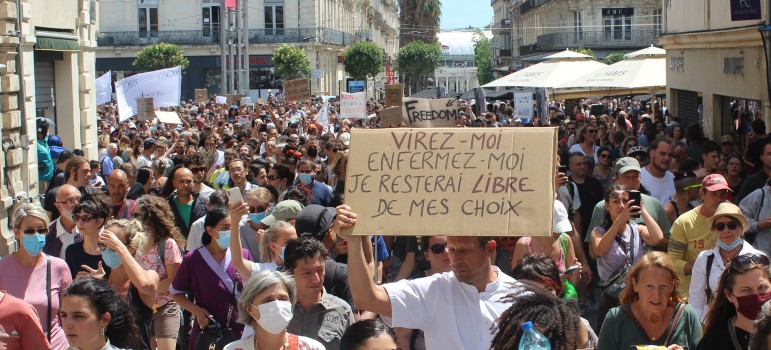
Wednesday July 14. Montpellier (Hérault)
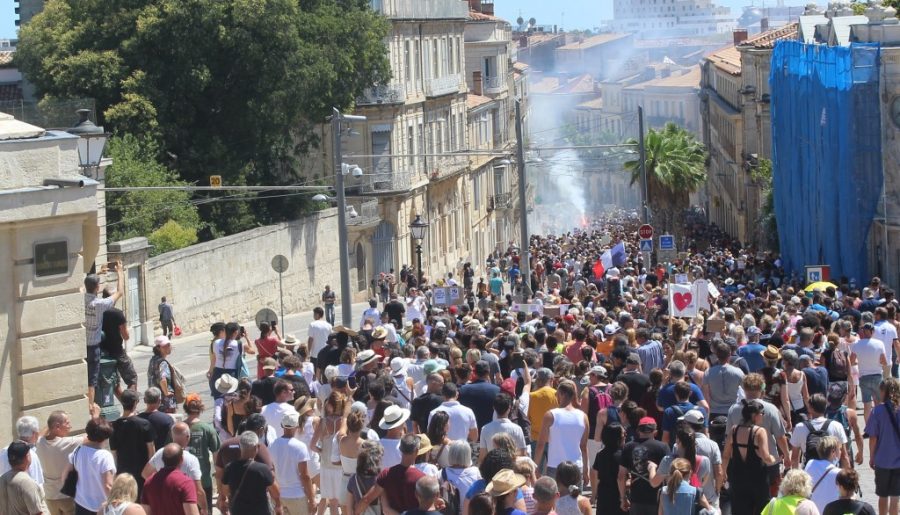
Saturday July 17. Montpellier (Hérault)
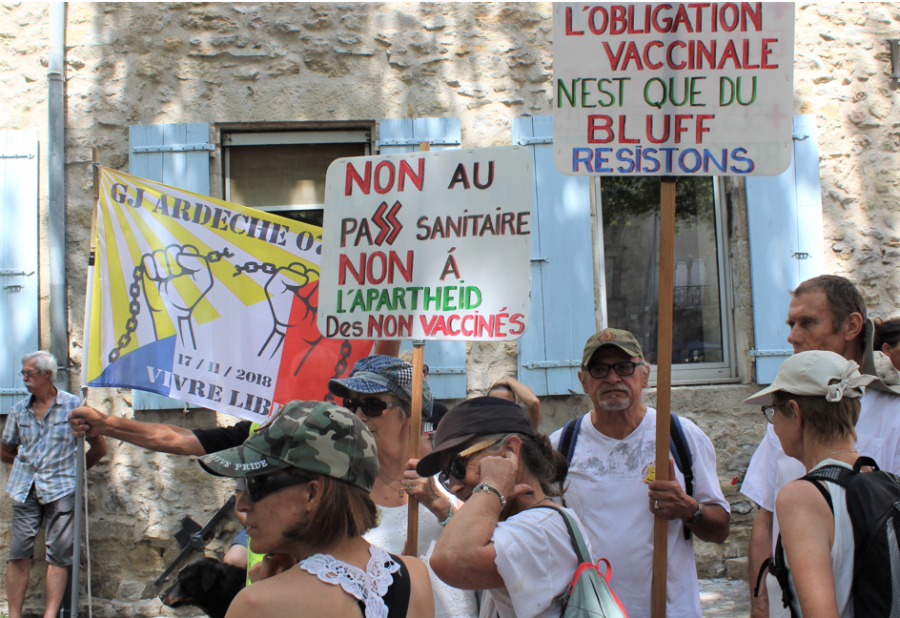
Saturday July 24. Aubenas (Ardèche)

Saturday July 31, Annecy (Haute-Savoie)
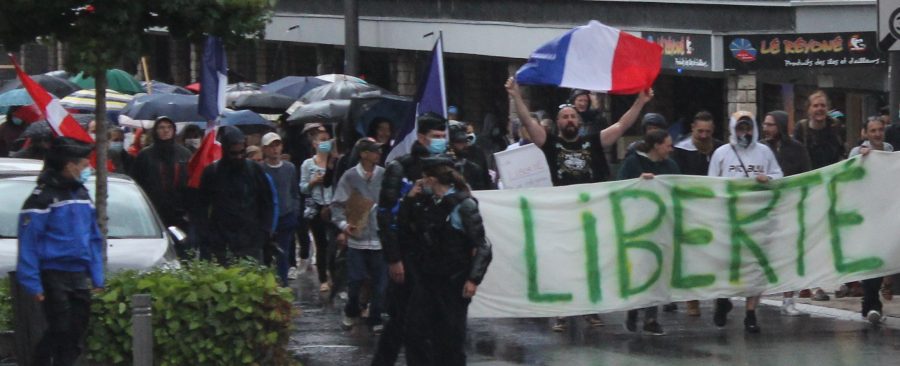
Saturday August 7, Sallanches (Haute-Savoie)
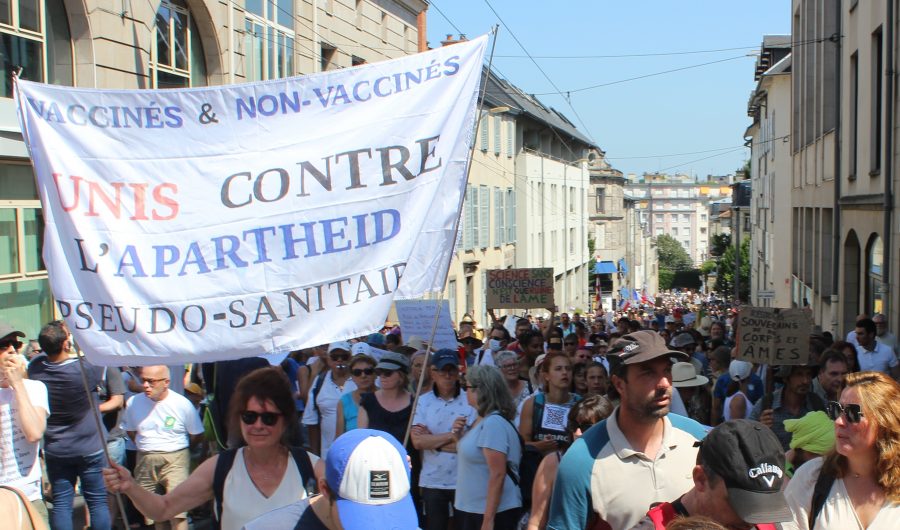
Saturday August 14, Limoges (Haute-Vienne)

Saturday August 21, Dinan (Ille-et-Vilaine)
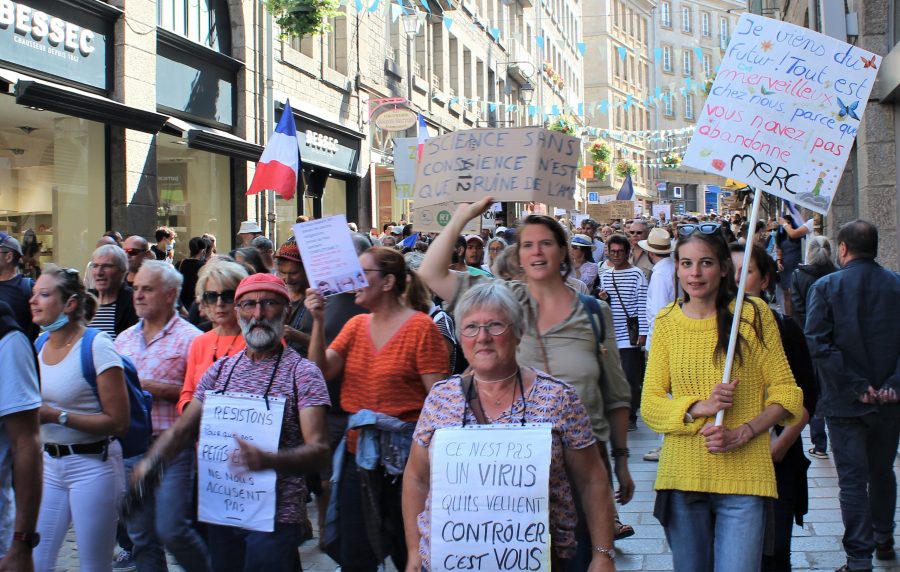
Sunday August 22, St Malo (Ille-et-Vilaine)

Saturday August 28, Alès (Gard)


